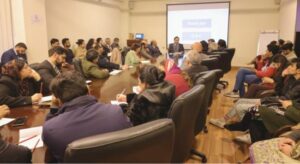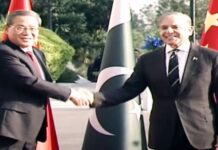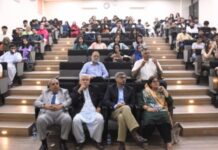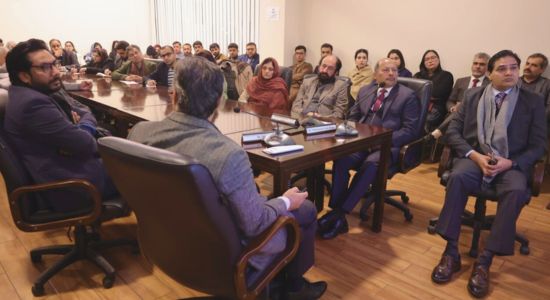LAHORE, Jan 8 (NNI): Experts on security and counter-terrorism have emphasized the need for strengthening cooperation between Pakistan and China for combating the threat of terrorism which they argued is impeding progress on economic initiatives and projects between the two countries.
Dr. Naveed Elahi, former Joint Director General of the Intelligence Bureau and currently the Dean of National Institute of Public Policy (NIPP) and Amir Rana, the President of the Pakistan Institute of Peace Studies (PIPPS) were speaking at the Beaconhouse National University (BNU)’s Center for Policy Research (BCPR) in Lahore.
The session moderated by former Ambassador of Pakistan to Afghanistan Mr. Mansoor Ahmad Khan who now heads the BCPR was attended by leading academics and researchers in the field of counter-terrorism. The presentations of the two speakers were followed by an absorbing question and answer session.
In his remarks, Dr. Naveed Elahi traced the progressive growth of terrorism in Pakistan in past several decades due to multiple factors with political, societal and economic dimensions.
He noted that starting primarily as sectarian violence the terrorism received ideological stimulus from Afghan Jihad in 1980s and Taliban insurgency against the US and NATO presence in that country. He added that the emergence of organizations like Al-Qaeda and Daesh have provided a global umbrella of support and patronage to regional terrorist groups like TTP and BLA.
Dr. Elahi acknowledged that both the TTP has continued to intensify its operational capacity to cause more and harm to Pakistan’s interests by particularly targeting the Chinese projects and personnel in recent years.

In this regard, he explained how governments in Pakistan have been making efforts to counter the attacks by the TTP and BLA, but due to the gaps as well as the lack of consistency in the approach of tackling this menace of terrorism the number of these attacks and the damage has continued to increase.
Mr. Amir Rana opined that Pakistan’s efforts in fighting terrorism including the TTP and BLA have not been able to deliver because of systemic issues within Pakistan’s institutional structure and bureaucratic inertia.
He elaborated that while various policies were enacted in the past three decades to fight terrorism but these have remained on paper and there has been no serious follow up or implementation at the operational level.
Mr. Amir Rana further highlighted that the fight against terrorism and violent extremism in the modern age of social and IT-based media cannot be just fought though a security based approach of the past. He added that the state has to be ahead of the thinking and publicity campaign of the terrorist groups who continue to bombard the population with disinformation.
The authorities have to, therefore, build an environment in which the population perceives the government’s policies and measure as pro-people.
Both security experts suggested the need for deepening Pakistan’s engagement with China towards creating effective counter-terrorism cooperation mechanisms with a view to overcome the current challenges caused by rise in the terrorist attacks on Chinese workers in Pakistan. NNI








































